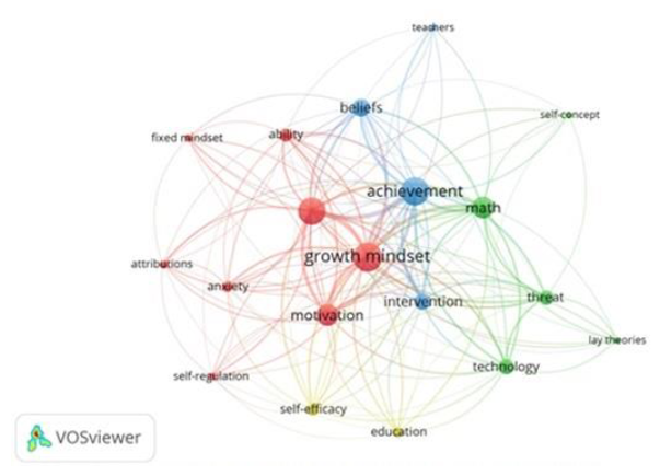
Title: Growth mindset and mathematics: A bibliometric analysis
Author: Chukwuemeka Metu, José Maria Marbán, Estefanía Espina
URL: https://journals2.ums.ac.id/jramathedu/article/view/6482
Date: 2025-01
License: Creative Commons Attribution-NonCommercial 4.0 International License
A growth mindset is the belief that one’s intellect and abilities may develop through effort. This mindset suggests that intelligence is not fixed but adaptable. With the continuous growth in literature on the growth mindset in mathematics, there is a need to investigate the current trends from a bibliometric perspective. To meet this need, the leading countries, source citations, author co-citations, and word co-occurrences were examined. A total of 317 articles were retrieved from the Scopus and Web of Science (WoS) databases spanning 2014–2023. The VOSviewer software was used to analyze the collected data. The United States was the leading contributor to growth mindset research, Frontiers in Psychology emerged as the major source of citations, with Dweck being the most cited author. The word cooccurrence map was grouped into different clusters. The Scopus database shows how belief systems shape mindsets and how motivation intersects with clinical and longitudinal investigations. WoS emphasizes the importance of interventions that narrow belief-achievement gaps, as well as the role of technology. These findings offer valuable insights into the expanding body of research on growth mindset in mathematics, paving the way for further research to explore interventions, cultural influences, and long-term effects on student outcomes.
I’m not an educator so take my words with a grain of salt, but it seems like this article could be used in a curriculum as an example of bibliometric analysis. It’s easy to follow even without relevant background, and productivity-related topic (provided with 3.5 pages of bibliography) might be more engaging for some students.